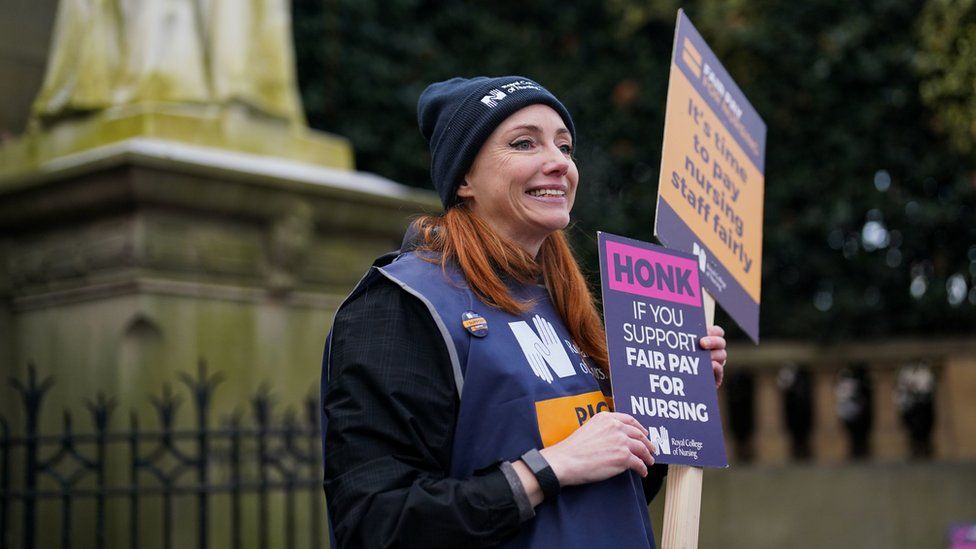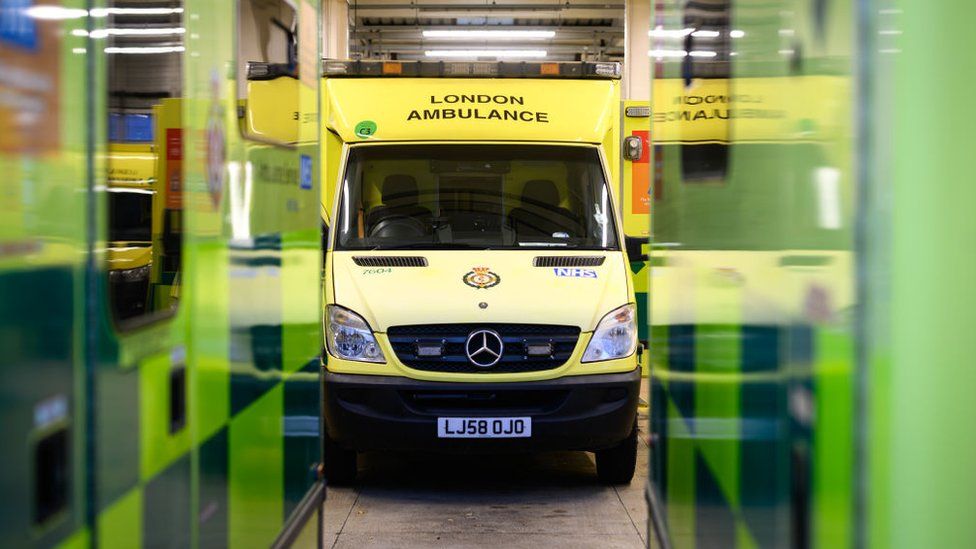
Ten more days of strikes by ambulance workers in England, Wales and Northern Ireland have been announced by the Unite union.
Four of the dates in February and March coincide with walkouts by staff from the GMB union, in a pay dispute.
On 6 February the two unions will be joined by nurses from the GMB in the biggest NHS walkout in this dispute.
A health department spokesman said it is “continuing to have constructive discussions” with unions about pay.
The announcement of the news dates means ambulance trust workers will now be striking on:
- Thursday 26 January in Northern Ireland – GMB workers
- Monday 6 February in North West, North East, West Midlands, East Midlands and Wales – Unite and GMB ambulance workers and nurses
- Thursday 16 February in Northern Ireland – GMB workers
- Friday 17 February in West Midlands, Northern Ireland.
- Monday 20 February in East Midlands, North East and Wales – Unite and GMB workers
- Wednesday 22 February in North West – GMB workers
- Thursday 23 February in Northern Ireland – GMB workers
- Friday 24 February in Northern Ireland – GMB workers
- Monday 6 March in North West, North East, West Midlands, East Midlands and Wales – Unite and GMB workers
- Monday 20 March in North West, North East,West Midlands, East Midlands and Wales – Unite and GMB workers
Not all union member ambulance staff – including paramedics, call handlers and support workers – will strike at once. Under trade union law emergency cover will still be provided and staff can leave the picket lines to attend.
Ahead of previous strikes in January and December, patients were told that all Category 1 calls – classed as the most life-threatening situations, such as cardiac arrest – would be responded to by an ambulance. However, less urgent calls which are not immediately judged to be life-threatening (Category 2), might have to wait longer than usual for an ambulance but they would still respond to strokes and heart attacks. Urgent problems that fit into Category 3 – such as a woman in late-stage labour – would not be prioritised, the public was told.
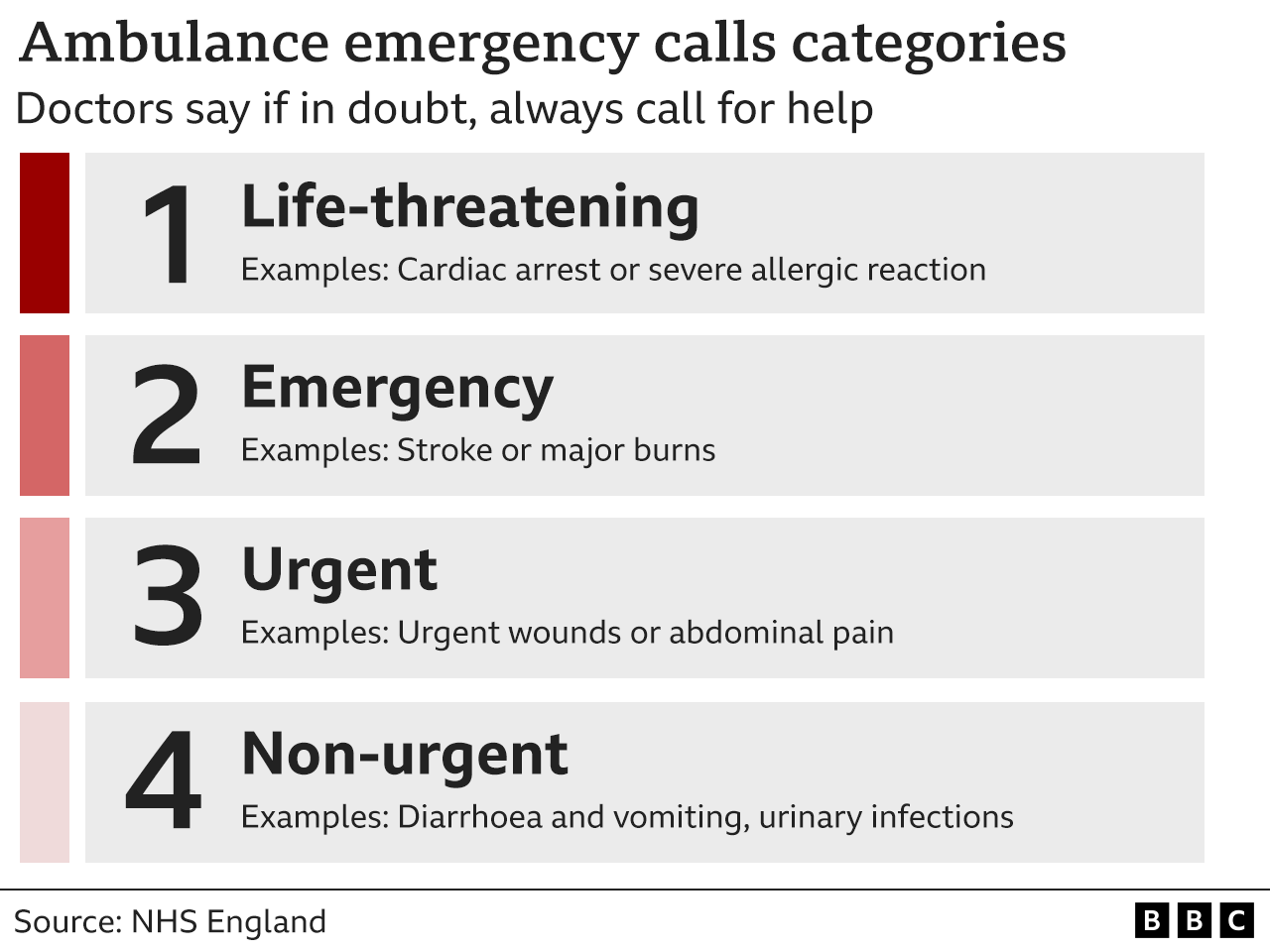
In all cases, patients with the most urgent clinical need will be given priority.
Unite is the smallest of the three main unions in the ambulance service, meaning on some days only a couple of hundred ambulance workers across the country will actually be striking across the 10 ambulance services in England, those in Wales and Northern Ireland.
Speaking to the BBC in the Political Thinking podcast, Unite General Secretary Sharon Graham said staff were “fighting for the NHS”.
Ms Graham said: “People are dying as we speak because of waiting times and the clogging up of the NHS.”
She called on Rishi Sunak to personally intervene on pay negotiations.
“If they don’t solve the pay crisis, they can’t solve the crisis of the workforce, which means that the NHS is on its knees,” she said.
Ms Graham said workers will ensure “proper minimum cover because that is something that’s really important to us”.
“Nobody wants lives to be lost,” she added.
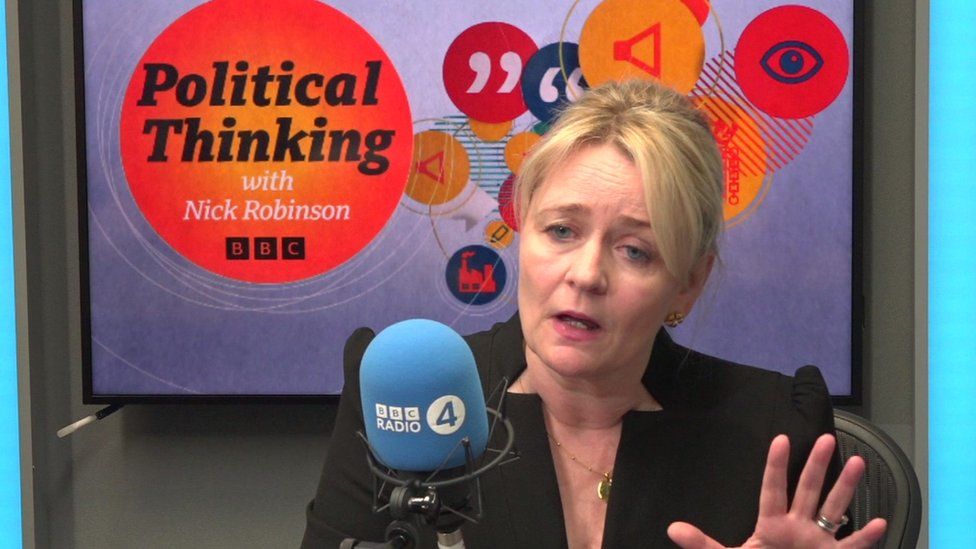
The dispute centres on pay, with workers calling for above-inflation (10.5% in the year to December) pay rises.
The government has made it clear it is not willing to move on this year’s pay award.
But the governments in England and Wales have given NHS staff an average of 4.75%, with everyone guaranteed at least £1,400 – as recommended by the independent NHS Pay Review Body.
That is less than half the rate of inflation, although latest figures show the rate at which prices are rising has started to slow.
One option being explored by Health Secretary Steve Barclay is backdating the 2023-24 rise to January. It would normally kick in in April.
The Treasury has not agreed to the idea.
This has already been tabled in Scotland, leading to NHS strikes being halted for further negotiations – although staff there received a 7.5% pay rise this year.
A Department of Health and Social Care spokesperson said: “It is disappointing some union members are going ahead with further strikes at a time when the NHS is already under huge pressure from Covid, flu and tackling the backlog.
“The Health and Social Care Secretary is continuing to have constructive discussions with unions about the 2023/24 pay review process and what is affordable and fair.”

Do you work for an ambulance service? Will you be taking part in strikes? You can get in touch by emailing haveyoursay@bbc.co.uk.
Please include a contact number if you are willing to speak to a BBC journalist. You can also get in touch in the following ways:
- WhatsApp: +44 7756 165803
- Tweet: @BBC_HaveYourSay
- Upload your pictures/video here
- Or fill out the form below
- Please read our terms & conditions and privacy policy
If you are reading this page and can’t see the form you will need to visit the mobile version of the BBC website to submit your question or comment or you can email us at HaveYourSay@bbc.co.uk. Please include your name, age and location with any submission.

-
-
29 December 2022
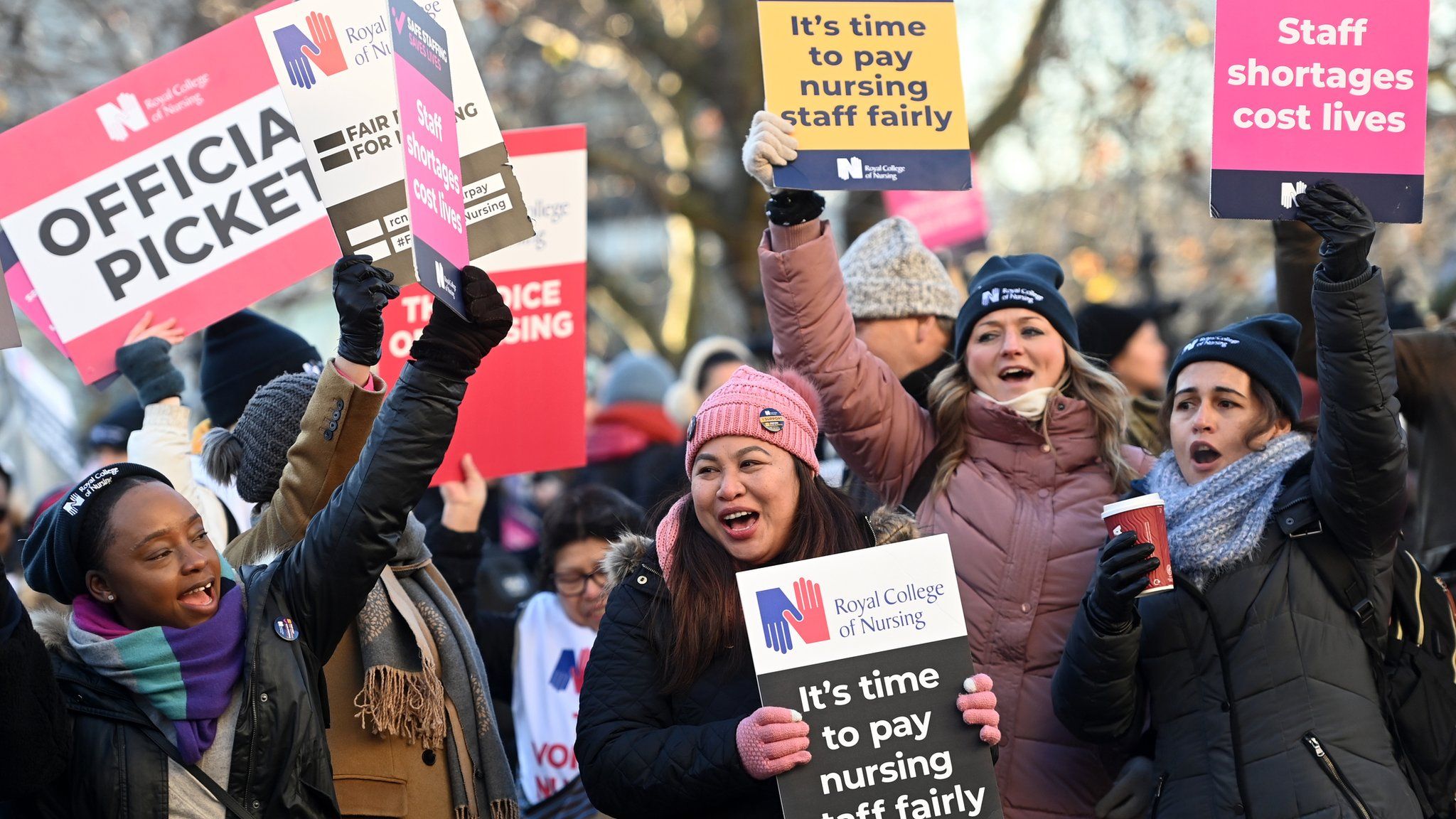
-
-
-
23 December 2022
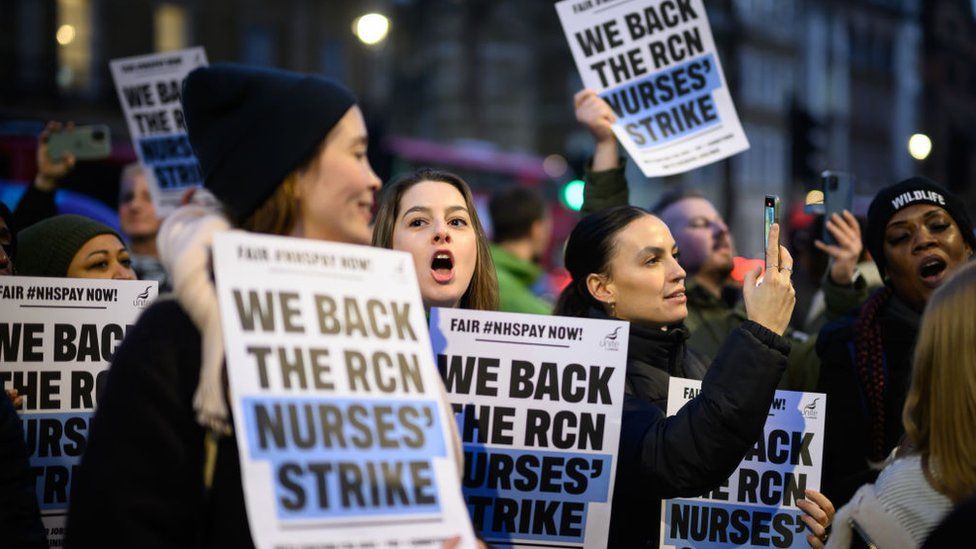
-

